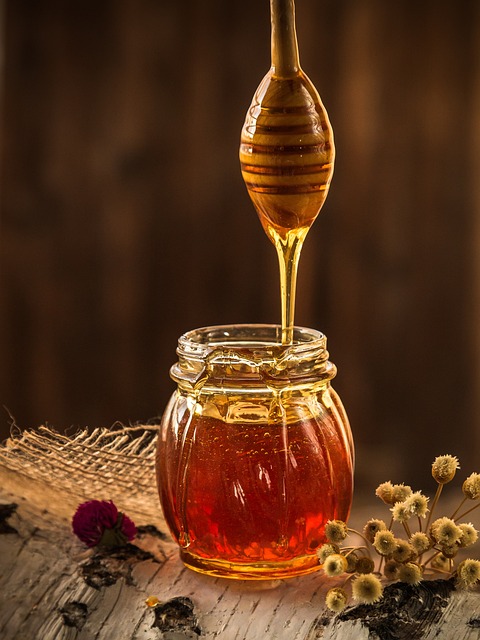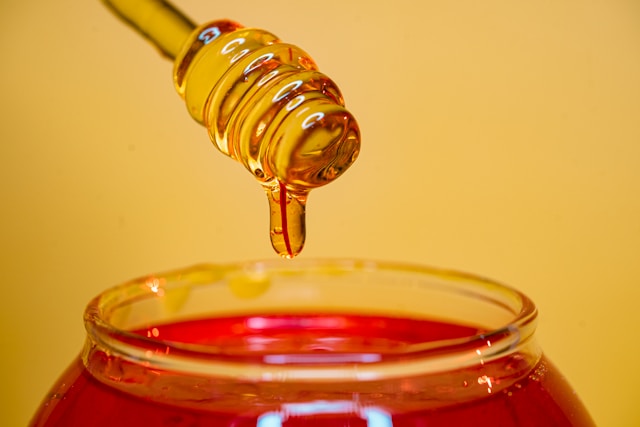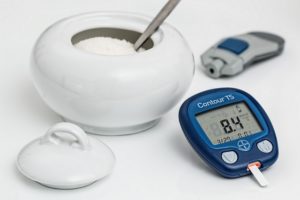Does Honey Cause Blood Sugar Problems?

For years I’ve seen or heard claims that honey is a natural sweetener that doesn’t cause problems with blood sugar. As such, it is claimed that individuals with blood sugar problems or diabetes can use honey safely. While the evidence for stevia as a sweetener that improves blood sugar is compelling, for honey, the story is more nuanced.
Honey and Fructose
First, it’s worth considering what honey contains. Honey is largely composed of sugars, with the dominant sugar being fructose, averaging around 38% (Ball 2007). These levels aren’t too far off from high fructose corn syrup, which usually contains either 42% fructose or 55% fructose based on the formulation (FDA 2018). As a sweetener, fructose is well known to have minimal effects on raising blood sugar immediately after consumption, even in patients with diabetes (Nuttall 1992).
However, that doesn’t equate to being safe for long-term consumption in diabetes. In fact, fructose is known to increase fat production in the liver, decrease fatty acid breakdown and trigger inflammation. Data also suggests that fructose impairs blood sugar control by disrupting insulin signaling (Softic 2020). While well-done studies don’t appear to show that excess fructose poses a higher risk than other types of sugar (Zafar 2021), long-term consumption is still associated with weight gain, diabetes and heart disease (Siedlecka 2020).
Due to the fact that short-term use of fructose doesn’t immediately raise blood sugar, studies need to assess continuous honey consumption to better evaluate its effects on blood sugar and overall health.
Honey Studies
A study in healthy young adults had participants consume either 70 grams of honey or sucrose (table sugar) per day for one month. After one month, fasting blood sugar was modestly reduced by honey, but increased from sucrose (Rasad 2014).
However, a study in patients with type 2 diabetes gave them 75 grams of honey per day as compared to diabetics who didn’t consume honey. After two months (Bahrami 2009), blood sugar levels increased, as measured by hemoglobin A1c (HbA1c). The levels of HbA1c increased from 7.1% to 7.7% with honey consumption, whereas control patients only increased from 7.1% to 7.3%.
In overweight adults, individuals were given 70 grams of either honey or sucrose for 30 days (Yaghoobi 2008). Blood sugar levels were not significantly different, although they increased slightly with sucrose and decreased slightly with honey.
A study in diabetics using honey as the sole treatment for the condition found that honey caused more episodes of elevated blood sugar (Abdulrhman 2016). A separate study gave patients with diabetes 50 grams of honey per day for two months and found that patients not given honey had lower HbA1c than those given honey (Sadeghi 2019).
A review of the research on honey and blood sugar control found that honey caused modest reductions in blood sugar overall, although the type of honey had a significant impact. For lowering blood sugar, robinia honey from black locust tree flowers, clover honey or raw honey provided beneficial effects (Ahmed 2023). However, when just looking at the data for patients with diabetes, one review concluded that honey consumption can worsen aspects of blood sugar control (Akhbari 2021).
So What Can We Conclude?

Overall, the conclusion from the research appears to be that reasonable honey consumption in healthy individuals doesn’t cause problems with blood sugar. Yet for individuals with diabetes, honey may be problematic.
Unfortunately, a lot of the current research available is not of high quality. In addition, honey is often adulterated with corn syrup, which could skew some of the research findings if adulterated honey was used. Processed honey may also have less benefits as compared to raw honey. Hopefully, in the future, larger, high-quality studies will be performed to better understand the effects of honey on blood sugar and health.



